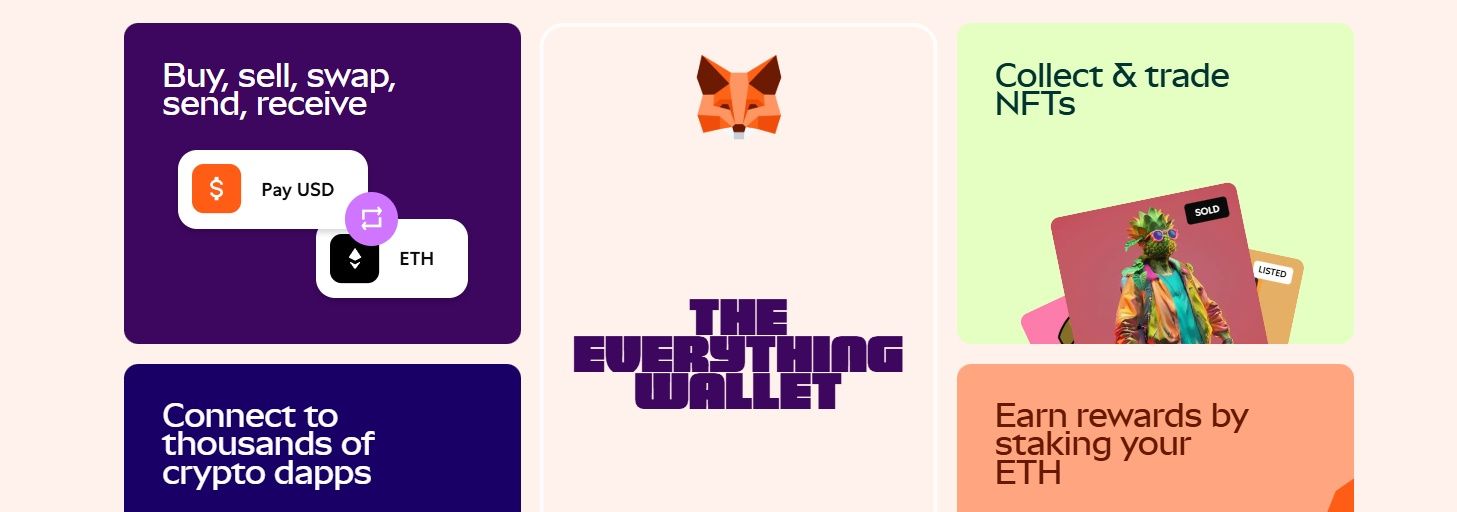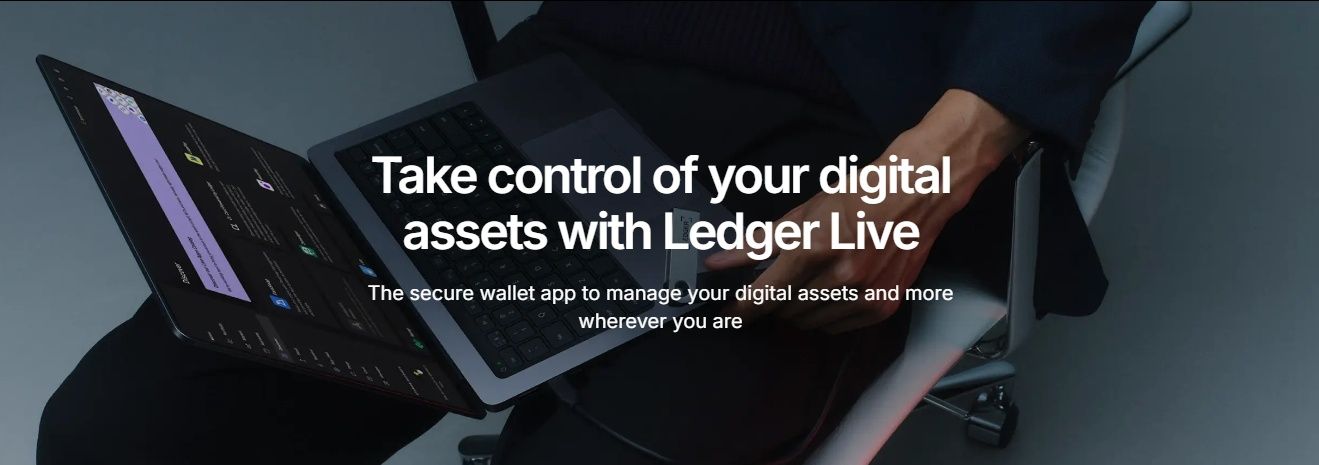Exodus is kind of the crowd-pleaser of crypto wallets. It’s sleek, easy to use, and makes managing crypto feel less like rocket science and more like checking your email. It’s been a gateway wallet for countless newcomers entering the blockchain world, and for good reason.
But here’s the thing: as you get deeper into crypto, Exodus can start to feel a bit... limiting. Maybe you’re ready to explore DeFi, need stronger privacy controls, or want to connect your shiny new hardware wallet that isn’t a Trezor. Suddenly, that beginner-friendly interface starts to feel more like a walled garden.
If you’ve hit that point — where Exodus just isn’t cutting it anymore — you’re not alone. Whether you’re itching for more security, flexibility, or features, 2025 has a ton of powerful wallet alternatives waiting in the wings.
So, let’s take a tour of the alternatives to Exodus out there — wallets that fit different needs, user levels, and vibes — and help you find the one that’s perfect for your next crypto chapter.
Key Takeaways
- The top alternatives to Exodus are Atomic Wallet, Trust Wallet, MetaMask, Ledger Live, Trezor Suite, Coinomi, and Electrum, each offering unique strengths in staking, DeFi access, security, and asset support.
- Atomic Wallet is a strong all-rounder with built-in staking and a user-friendly interface but lacks hardware wallet integration.
- Trust Wallet excels on mobile with deep DeFi and NFT support, making it ideal for users seeking flexibility and DApp access.
- MetaMask is the go-to for Web3 and DeFi interaction, now expanding beyond EVM chains via Snaps for broader blockchain compatibility.
- Ledger Live provides top-tier hardware-backed security with a polished UI and access to staking and DeFi apps.
- Trezor Suite offers open-source transparency and enhanced privacy features, best suited for long-term holders and Bitcoin-focused users.
- Coinomi supports 125+ blockchains and is privacy-friendly but closed-source and lacks hardware wallet support.
- Electrum remains a top pick for Bitcoin maximalists seeking speed, multisig security, and deep control over wallet management.
- Users looking to switch from Exodus can migrate via recovery phrase or manually transfer funds — just double-check token support first.
Why Look for Exodus Alternatives in 2025?
Exodus has long been a favorite among crypto enthusiasts, especially those just dipping their toes into the digital currency waters. Its sleek design and user-friendly interface make it an attractive option for beginners. However, as the crypto landscape evolves, so do the needs of its users. Many users are now finding that Exodus, while still reliable, may not offer the advanced features and security measures that more seasoned investors or tech-savvy users require.
Limitations of the Exodus Wallet
1. Lack of Certain Advanced Features: While Exodus supports around 280 crypto assets and offers built-in exchange and staking options, it doesn't support all blockchains or advanced features like staking for every asset. This can be limiting for users looking to diversify their portfolios or engage in more complex transactions.
2. No Native Two-Factor Authentication (2FA): Exodus does not offer traditional 2FA methods, such as SMS or authenticator apps. This is due to its design as a self-custodial wallet, where users have full control over their private keys and recovery phrases. While this approach enhances privacy, it also places the onus of security entirely on the user, which can be daunting for some.
3. Closed-Source Nature: Exodus is not open-source entirely, meaning its code isn't publicly available for review. Only a few components are open source. This lack of transparency and inconsistency can be a concern for users who prioritize open-source software for its community-driven security audits and trustworthiness.
4. Limited Hardware Wallet Support: Exodus integrates with Trezor and Ledger hardware wallets, providing an added layer of security. However, it doesn't support other popular hardware wallets. This limitation can be a deal-breaker for users who prefer or already own different hardware wallets.
 As the Crypto Landscape Evolves, so do the Needs of its Users. Image via Shutterstock
As the Crypto Landscape Evolves, so do the Needs of its Users. Image via ShutterstockWhat Makes a Good Crypto Wallet in 2025?
As the crypto world matures, users are seeking wallets that offer more than just basic functionality. Here's what to look for in a top-tier crypto wallet today:
1. Robust Security Measures: A good wallet should offer multiple layers of security, including 2FA, biometric authentication, and compatibility with hardware wallets. Open-source wallets allow the community to inspect and improve the code, enhancing trust and security.
2. Multi-Chain Support: With the proliferation of various blockchains, a versatile wallet should support multiple chains, allowing users to manage diverse assets in one place.
3. User-Friendly Interface: An intuitive and responsive UI/UX is crucial, especially for newcomers. Features like easy navigation, clear transaction histories, and real-time portfolio tracking enhance the user experience.
4. DeFi Integration: Access to decentralized finance (DeFi) platforms directly from the wallet enables users to participate in staking, lending, and yield farming without needing to transfer assets between platforms.
5. Cross-Platform Compatibility: A wallet that syncs seamlessly across desktop and mobile devices ensures users can manage their assets anytime, anywhere.
Exodus remains a solid choice for many, but users are increasingly seeking wallets that offer enhanced security, broader functionality, and greater flexibility to meet their evolving crypto needs.
Top 7 Alternatives to Exodus Wallet (Ranked & Reviewed)
If you're exploring alternatives to Exodus, you're in luck. The crypto wallet ecosystem has matured, offering a plethora of options tailored to various user needs. Whether you're a casual trader, a DeFi enthusiast, or someone prioritizing security, there's a wallet out there for you. Let's delve into the top contenders that stand out this year.
| Wallet | Supported Assets | Best For | Staking | DeFi Integration | Hardware Wallet Support | Notable Features |
|---|---|---|---|---|---|---|
| Atomic Wallet | 1200+ cryptos | Beginner/Intermediate | Yes | No | No | Built-in staking, in-app swaps, wide asset support |
| Trust Wallet | 10M+ assets, 100+ blockchains | DeFi Users | Yes | Yes | No | Web3 browser, DEX, NFT support |
| MetaMask | EVM + non-EVM via Snaps | Advanced Users | Yes (limited) | Yes | Yes | Browser-based, Snap plugins, DEX aggregator |
| Ledger Live | 5500+ cryptos | Security-Focused Users | Yes | Yes (via apps) | Required | Hardware-secured, polished UI, staking, apps like Lido |
| Trezor Suite | BTC, ETH, ADA, ERC-20, Solana, etc. | Privacy-Focused Users | Yes | Yes (via aggregator) | Required | Open-source, Tor integration, UTXO management |
| Coinomi | 125+ blockchains, thousands of tokens | Beginners | No | No | No | Built-in swaps, multi-language support, easy token management |
| Electrum | Bitcoin only | Bitcoin Maximalists | No | No | Yes | Lightweight, multi-sig, 2FA, cold storage, hardware wallet integration |
1. Atomic Wallet – Similar UI, Supports Staking
Atomic Wallet is often the first name that pops up when people start scouting for Exodus alternatives. It shares a lot of the same visual charm and simplicity that made Exodus popular, but goes a step further with built-in staking, broader asset support, and more control over your keys. If you’re looking for a non-custodial wallet that balances usability with function, Atomic makes a strong case.
Check out our detailed review of Atomic Wallet.
 Atomic Wallet comes with Built-in Staking, Broad Asset Support. Image via Atomic Wallet
Atomic Wallet comes with Built-in Staking, Broad Asset Support. Image via Atomic WalletSupported Assets
Atomic Wallet supports over 1,200 crypto assets, including Bitcoin, Ethereum, XRP, Litecoin, and Stellar, along with a huge variety of ERC-20 tokens. That makes it ideal for users with diverse portfolios.
Security Features
This is a non-custodial wallet, meaning your private keys are encrypted and stored on your device — not in the cloud. However, it does not support hardware wallet integration, which may be a dealbreaker for those seeking maximum security.
User Experience
The interface is sleek and intuitive. It’s beginner-friendly but offers enough functionality — including a built-in exchange and staking options — to keep advanced users satisfied.
✅ Pros
- Wide crypto support.
- Built-in staking and swaps.
- No KYC needed.
❌ Cons
- No hardware wallet support.
Beginner/Intermediate – Users who want a full-featured wallet that’s easy to use, with built-in staking and strong coin support.
2. Trust Wallet – Mobile-Focused, DeFi-Friendly
Trust Wallet is one of the most popular mobile wallets out there — and for good reason. Acquired by Binance in 2018, it’s become the go-to option for users who want full control over their crypto while staying on the go. With a clean interface and deep DeFi integration, it's a serious upgrade for anyone outgrowing Exodus.
We have covered Trust Wallet for you to check out.
 Trust Wallet brings a Clean Interface and Deep DeFi Integration. Image via Trust Wallet
Trust Wallet brings a Clean Interface and Deep DeFi Integration. Image via Trust WalletSupported Assets
Trust Wallet supports over 10 million digital assets across 100+ blockchains. That includes everything from Bitcoin and Ethereum to newer chains like Solana and Avalanche, plus NFT storage and Web3 tokens.
Security Features
It’s fully non-custodial, so you hold your private keys. Trust Wallet adds biometric login and PIN protection.
User Experience
It’s very beginner-friendly. The wallet features an in-app DEX, Web3 browser for DApps, and built-in staking for supported coins.
✅ Pros
- Huge multi-chain asset support.
- Integrated DEX and staking.
- Simple and intuitive interface.
❌ Cons
- The DApp ecosystem can feel a bit limited.
DeFi Users – Mobile-first users looking for DeFi access, broad asset support, and a clean, easy-to-use wallet.
3. MetaMask – Browser-Based, Great for Web3/DeFi
MetaMask has long been the go-to wallet for Ethereum and DeFi enthusiasts. In 2025, it's evolving beyond its roots, introducing support for non-EVM chains like Solana and Bitcoin, and enhancing its user interface to cater to both newcomers and seasoned users.
Want to know more about MetaMask? Check out our detailed review here!
 MetaMask is a Great Wallet for DeFi Enthusiasts, Supporting a Variety of EVM-Compatible Networks. Image via Metamask
MetaMask is a Great Wallet for DeFi Enthusiasts, Supporting a Variety of EVM-Compatible Networks. Image via MetamaskSupported Assets
Originally designed for Ethereum, MetaMask now supports a variety of EVM-compatible networks such as Arbitrum, Optimism, and Base. With the introduction of MetaMask Snaps, users can extend functionality to non-EVM chains, including Solana and Bitcoin, broadening the wallet's versatility.
Security Features
MetaMask is a non-custodial wallet, ensuring users retain control over their private keys. It offers features like biometric authentication and hardware wallet integration for enhanced security. However, it lacks native two-factor authentication (2FA), which some users might find limiting.
User Experience
The wallet provides a user-friendly interface, with recent updates simplifying token swaps and asset management. Its built-in DEX aggregator and Web3 browser facilitate seamless interaction with decentralized applications.
✅ Pros
- Supports multiple EVM and non-EVM chains.
- Integrated DEX and Web3 browser.
- Hardware wallet compatibility.
❌ Cons
- No native 2FA support.
- Primarily browser extension-focused, which may not appeal to all users.
Users deeply engaged in DeFi and Web3 applications, seeking a versatile and secure browser-based wallet.
4. Ledger Live – Best for Hardware Security
 Ledger Live is Intuitive and Checks a Lot of Boxes for those Wanting a Secure Wallet Eexperience. Image via Ledger
Ledger Live is Intuitive and Checks a Lot of Boxes for those Wanting a Secure Wallet Eexperience. Image via LedgerLedger Live is the companion app to the popular Ledger hardware wallets, but it’s much more than a device manager. It’s a full-featured crypto dashboard where users can buy, sell, stake, and manage thousands of assets in one sleek interface. For those wanting a secure wallet experience with added convenience, Ledger Live checks a lot of boxes.
Supported Assets
Ledger Live supports over 5,500 cryptocurrencies, including BTC, ETH, SOL, DOT, and a range of tokens across multiple chains. NFT support is also available for Ethereum and Polygon-based collections.
Security Features
While security is tied to the Ledger hardware, the app itself adds value with secure transaction management, optional passphrase use, and compatibility with multiple Ledger devices. It doesn't store any private data or keys.
User Experience
Ledger Live’s interface is polished and intuitive, offering a clean portfolio overview, simple staking tools, and access to apps like Paraswap and Lido directly inside the platform.
✅ Pros
- Clean, intuitive interface.
- Great for asset management and staking.
- Integrates with DeFi via trusted apps.
❌ Cons
- Requires a Ledger device.
- Limited functionality without hardware.
Users looking for a secure, polished platform to manage assets while using hardware for peace of mind.
Check out our top reviews on some of Ledger's hardware devices:
5. Trezor Suite – Open-Source and Integrates Well with Trezor
 Trezor Suite Operates with Open-Source Firmware, Allowing Community Audits. Image via Trezor
Trezor Suite Operates with Open-Source Firmware, Allowing Community Audits. Image via TrezorTrezor Suite is the official desktop and mobile app for managing Trezor hardware wallets. Designed with a focus on security and user privacy, it offers a comprehensive platform for crypto asset management.
Supported Assets
Trezor Suite supports major cryptocurrencies like Bitcoin, Ethereum, Cardano, and Litecoin. It also accommodates ERC-20 tokens and, through recent updates, has expanded support to networks like Solana, Optimism, and Arbitrum.
Security Features
Emphasizing security, Trezor Suite operates with open-source firmware, allowing community audits. It integrates features like PIN protection, passphrase support, and utilizes Tor for enhanced transaction privacy.
User Experience
The interface is intuitive, catering to both beginners and advanced users. Features like UTXO management, staking options, and a built-in DEX aggregator enhance functionality. Recent updates have improved transaction management and added support for staking assets like Solana.
✅ Pros
- Open-source and transparent.
- Enhanced privacy features (e.g., Tor integration).
- Regular updates with new features.
❌ Cons
- Requires Trezor hardware device.
Users seeking a secure, open-source platform for managing their crypto assets with a focus on privacy and transparency.
You can check out our reviews on some of the Trezor hardware:
6. Coinomi – Multi-Asset Support, Good UX
 Coinomi is Known for its User-Friendly Interface and Robust Support for Various Cryptocurrencies. Image via Coinomi
Coinomi is Known for its User-Friendly Interface and Robust Support for Various Cryptocurrencies. Image via CoinomiCoinomi has been a staple in the crypto wallet scene since 2014, offering a versatile platform for managing a wide array of digital assets. It's known for its user-friendly interface and robust support for various cryptocurrencies, making it a popular choice among both beginners and seasoned users.
Supported Assets
Coinomi supports more than 125 blockchains and thousands of tokens, including major cryptocurrencies like Bitcoin, Ethereum, Solana, and Litecoin. Users can also manually add custom tokens, enhancing the wallet's flexibility.
Security Features
As a non-custodial wallet, Coinomi ensures that private keys never leave the user's device. The wallet claims to have never been hacked or compromised to date. It employs AES encryption and offers biometric authentication for added security. However, the wallet is not open-source, which may be a consideration for users who prioritize transparency.
User Experience
Coinomi provides an intuitive interface, supporting both mobile and desktop platforms. It features built-in exchanges allowing for seamless crypto swaps without leaving the app. The wallet also offers multi-language support, catering to a global user base.
✅ Pros
- Extensive support for cryptocurrencies and blockchains.
- User-friendly interface with integrated exchange features.
- No mandatory KYC, preserving user privacy.
❌ Cons
- Not open-source, which may concern some users.
- Lacks two-factor authentication (2FA).
Users seeking a comprehensive, multi-asset wallet with a focus on privacy and ease of use.
7. Electrum – For Bitcoin Maximalists
 Electrum is a Lightweight, Open-Source Wallet Designed Exclusively for Bitcoin. Image via Electrum
Electrum is a Lightweight, Open-Source Wallet Designed Exclusively for Bitcoin. Image via ElectrumHere's one pick for our Bitcoin purists. Electrum is a veteran in the crypto wallet space, having launched in 2011, so don't mind its old-school website. It's a lightweight, open-source wallet designed exclusively for Bitcoin, offering advanced features that cater to users who prioritize security and control over their BTC holdings.
Supported Assets
Electrum is a Bitcoin-only wallet. It does not support any other cryptocurrencies or tokens, making it ideal for users focused solely on BTC.
Security Features
Electrum offers robust security measures, including encryption for private keys, two-factor authentication (2FA) via a third-party service, and multi-signature wallet support. It also allows for cold storage setups and integrates with hardware wallets like Ledger and Trezor.
User Experience
The wallet is fast, using Simple Payment Verification (SPV) to avoid downloading the entire blockchain. Its interface is functional but may appear dated to some users. Electrum is available on Windows, macOS, Linux, and Android platforms.
✅ Pros
- High-level security features.
- Lightweight and fast.
- Supports advanced functionalities like multi-signature and hardware wallet integration.
❌ Cons
- Supports only Bitcoin.
- User interface may not be intuitive for beginners.
Users who are exclusively focused on Bitcoin and seek a secure, feature-rich wallet with advanced capabilities.
Feature Comparison: Exodus vs. Its Top Alternatives
 Some Wallets Shine in DeFi, Others in Security or Flexibility. Image via Shutterstock
Some Wallets Shine in DeFi, Others in Security or Flexibility. Image via ShutterstockChoosing the right wallet often comes down to the details — the subtle but critical differences in features. Here’s how Exodus stacks up against the competition across five key areas:
Security & Privacy
Exodus doesn’t support native 2FA, a common gripe among security-minded users. Electrum offers optional 2FA, while Ledger Live and Trezor Suite use hardware confirmation as an effective second factor. All wallets store seed phrases locally and encrypted, but only Electrum and Trezor Suite are fully open-source, offering maximum transparency. MetaMask is mostly open-source; Coinomi and Exodus are not.
Supported Assets & Chains
Exodus supports 280+ assets, but falls behind wallets like Trust Wallet (10M+ assets), and Ledger Live (5,500+). MetaMask, while focused on EVM chains, can now support non-EVM networks like Solana through its Snaps feature. Trezor Suite and Atomic offer broad support for major chains but may lag in cutting-edge token listings or newer Layer 2s.
DeFi & Web3 Access
MetaMask is king here, built from the ground up for DApp interaction and DeFi. Trust Wallet also integrates a DApp browser and supports staking. Atomic and Ledger Live allow staking of major assets, though DeFi access is more limited. Exodus supports basic staking but lacks native DApp connectivity. Electrum and Trezor Suite are focused on security, not DeFi.
Device Compatibility
Exodus runs smoothly on both desktop and mobile. Trust Wallet is more mobile-friendly. MetaMask shines as a browser extension and is now available on mobile too. Ledger Live and Trezor Suite offer solid desktop and mobile apps but require hardware. Electrum supports all desktop OSes and Android, but the interface may feel dated to casual users.
Backup, Sync & Recovery Options
Exodus and Atomic support cross-device syncing, but syncing private keys always carries risk. Most wallets use standard seed phrases for recovery, stored locally. Ledger and Trezor encourage offline-only backups — the gold standard for cold storage. Coinomi also allows easy migration but lacks cloud backup. MetaMask enables sync via QR codes, but without cloud recovery by default.
This breakdown shows there’s no one-size-fits-all. Some wallets shine in DeFi, others in security or flexibility. Picking the right one depends on what matters most to you.
Data Migration and Wallet Switching Made Easy
We get it — switching wallets can feel like packing up and moving houses. You've got everything set up just right, and the idea of starting over is… well, uncomfortable. But the truth is, moving from Exodus to a new wallet is a lot easier (and safer) than it sounds — if you know the right steps.
How to Safely Transfer Funds from Exodus
Exporting Private Keys or Using Recovery Phrase
Exodus doesn’t let you export all private keys at once, but you can view them per asset in the app. Alternatively, you can use your 12-word recovery phrase to restore your Exodus wallet into a compatible wallet like Atomic, Trust Wallet, or MetaMask — effectively cloning your wallet setup.
Send-to-Self Method
Prefer a cleaner break? You can manually send all your funds from Exodus to addresses generated in your new wallet. This way, you get a fresh start without importing any old wallet data.
Double-Check Address Compatibility
This one’s critical. Before transferring, make sure your new wallet supports all the assets you plan to move. Some wallets, for instance, don’t support native tokens like SOL or ADA unless they’re EVM-wrapped versions.
 If Needed, Moving from Exodus to a New Wallet is a Lot Easier and Safer than it Sounds. Image via Shutterstock
If Needed, Moving from Exodus to a New Wallet is a Lot Easier and Safer than it Sounds. Image via ShutterstockBackup and Recovery Options Across Wallets
Where Seed Phrases Differ
Most modern wallets use a 12- or 24-word BIP39 seed phrase, but there are exceptions. Always verify your new wallet’s recovery format. For example, Electrum uses a unique format, which means you can't import its seed into wallets like MetaMask or Trust.
Secure Cloud Storage Tips
Some wallets (like Trust or Atomic) allow encrypted backups through services like iCloud or Google Drive — convenient, but make sure it’s password-protected and 2FA-secured. If you’re going this route, use a strong, unique password.
Third-Party Backup Tools
If you're managing multiple wallets, tools like Keystone or Cryptosteel offer cross-wallet recovery options and even physical backup devices (like steel plates) for your seed phrase. Just remember: never store your seed online unencrypted.
The key takeaway? Moving wallets doesn’t have to be scary — it's just about doing it thoughtfully. Start small, verify everything, and soon enough, you’ll feel right at home in your new crypto digs.
How to Choose the Best Wallet for Your Needs
With so many wallets on the market, choosing the right one can feel like trying to pick the perfect pair of shoes — it really depends on where you’re walking. Below, we’ll help you narrow things down based on what kind of crypto user you are.
Casual Traders vs. Long-Term Investors
If you're someone who checks prices a few times a week and does the occasional trade, you'll want something simple and reliable. Exodus, Atomic Wallet, and Coinomi offer clean interfaces, quick swaps, and just enough features to cover the basics.
Long-term HODLers, on the other hand, might prefer Ledger Live or Trezor Suite. These are ideal for cold storage, staking, and peace of mind over multi-year holds — especially when paired with hardware.
 Choosing the Right One can Feel like Trying to Pick the Perfect Pair of Shoes. Image via Shutterstock
Choosing the Right One can Feel like Trying to Pick the Perfect Pair of Shoes. Image via ShutterstockPrivacy Seekers vs. DeFi Enthusiasts
If keeping things private is your top concern, go for Trezor Suite or Electrum. They offer open-source code, privacy features, and no tracking. Coinomi is also privacy-friendly, with no KYC required.
But if you're all about DApps, staking, or yield farming, MetaMask and Trust Wallet are the go-to picks. They’re deeply integrated with the DeFi ecosystem and come with built-in DEX access and Web3 browsers.
Hardware vs. Software Wallet Users
Prefer to keep things locked down? Hardware wallet users should stick with Ledger Live or Trezor Suite, which are specifically built to manage devices securely while offering full control.
If you like the convenience of managing your crypto on your phone or laptop, Atomic, Exodus, and Trust Wallet are top-tier software options — each offering great UI and essential tools without needing extra gear.
Best Options for Cross-Device Syncing
Need to jump between phone and laptop? Exodus, Atomic Wallet, and Ledger Live offer solid cross-device functionality, syncing portfolios seamlessly across platforms.
Trust Wallet is mobile-only, so it’s not ideal for desktop users. MetaMask can bridge browser and mobile, but syncing takes a bit of effort. Trezor Suite and Electrum are more desktop-oriented, with limited mobile usability.
Final Verdict: Is It Time to Move On from Exodus?
Exodus has had a good run, and for many, it’ll always be the wallet that made crypto feel accessible. But if you've been eyeing more features, better security, or smoother DeFi access, 2025 might just be the year to level up.
Whether it’s Atomic Wallet for staking, Trust Wallet for mobile DeFi, MetaMask for full-on Web3 exploration, or Ledger Live for fortress-grade security, there’s an alternative out there with your name on it. And if privacy or Bitcoin is your game, Trezor Suite and Electrum won’t disappoint.
Still feeling hesitant? Totally normal. You don’t have to ditch Exodus cold turkey. Try running two wallets in parallel — explore features, move small amounts, get a feel for the new one. Worst case, you go back. Best case? You find something that finally feels like home.
In the world of crypto, the best wallet is the one that grows with you. And if Exodus isn’t doing that anymore, it’s perfectly okay to move on.





